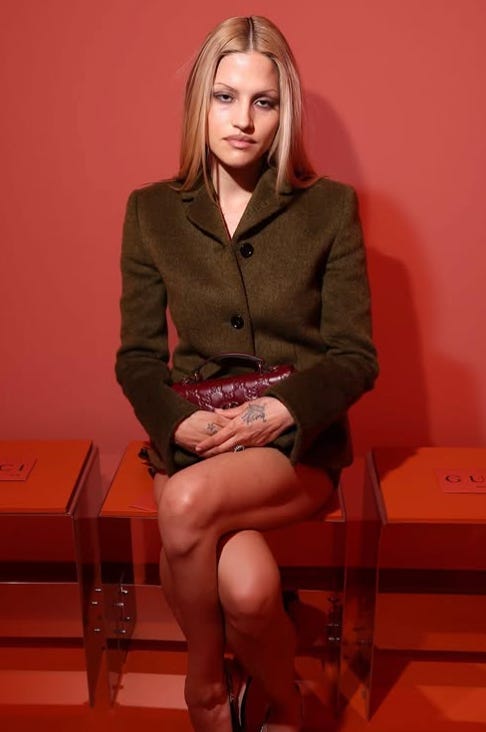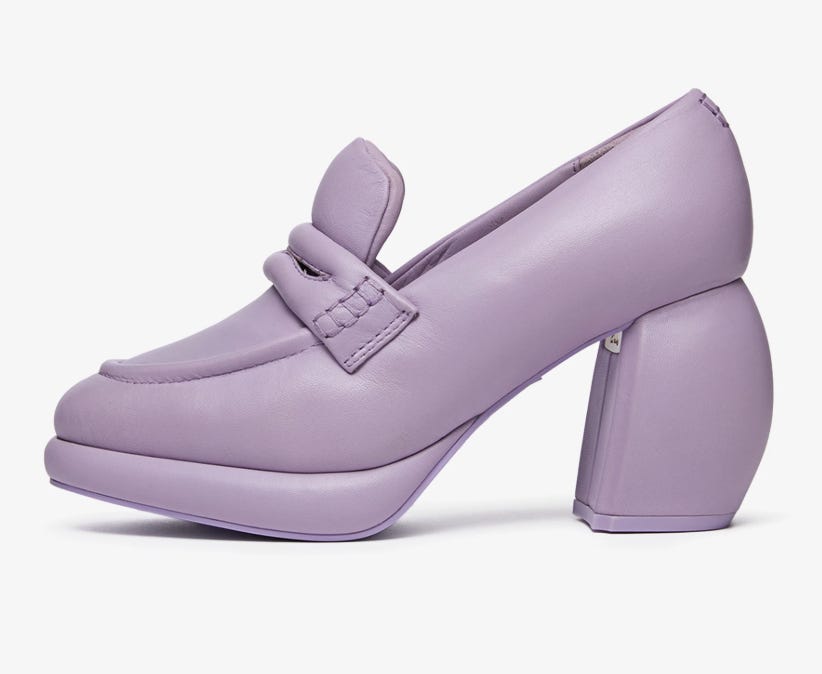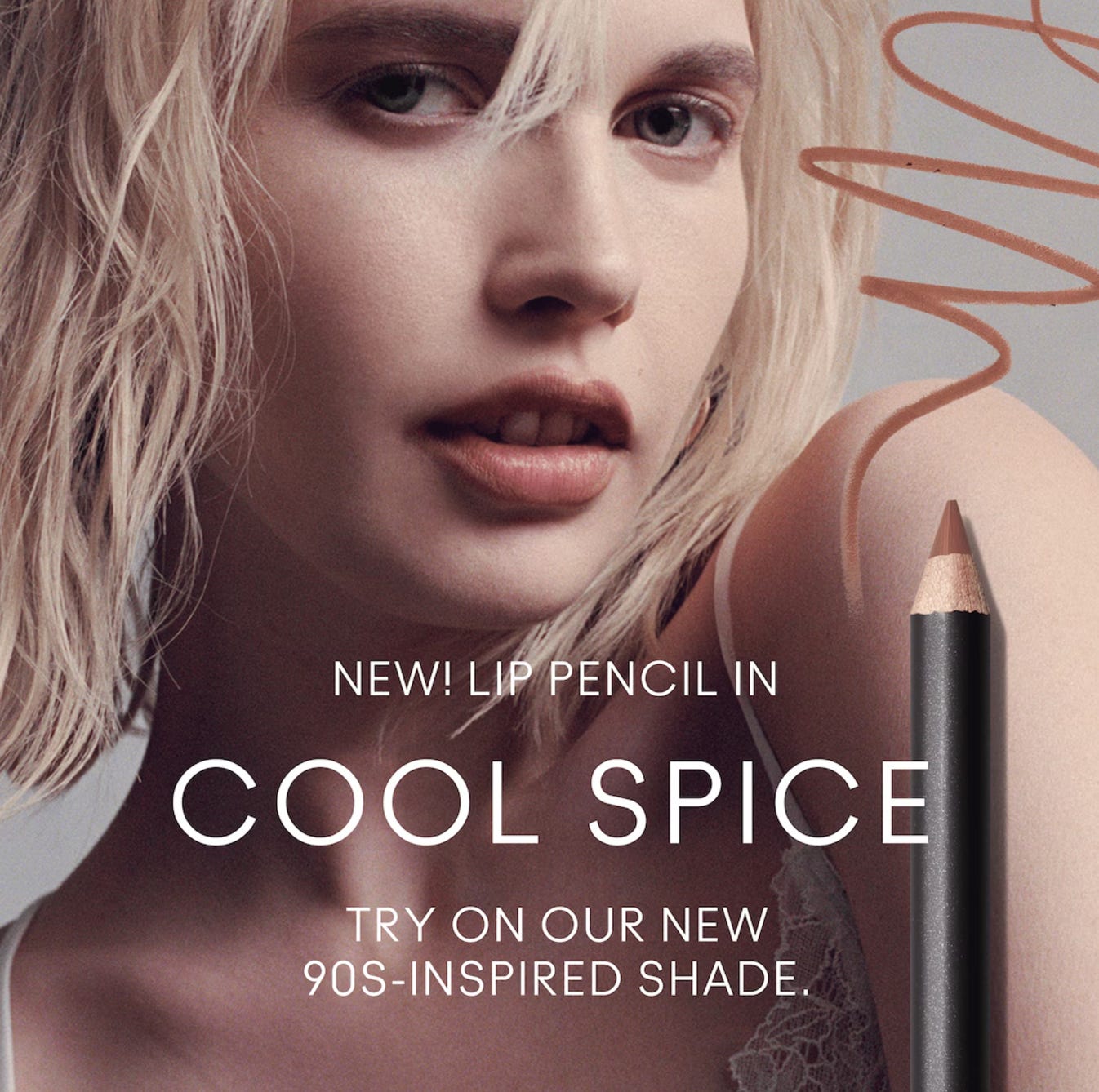EVERYTHING, EVERYWHERE, ALL AT ONCE
Are you a cultural omnivore?
Today I want to talk about cultural agility. It’s something I talk about a lot at work (I help brands grow), but feel like I should be doing more in my actual life. A new year’s resolution? We still doing those?
Is cultural agility the new cultural capital?
Today’s thought follows what we were talking about last week:
I said I think we're going to see the further rise of what sociologist Richard Peterson called cultural omnivores in The Culture of Consumption.
Why?
Being ‘cultured’, or high status, used to mean things like having signed first editions of the classics on big shelves in your big home, well-tailored new season clothes on your back, and a vintage wine in your glass as you casually pick up the correct fork at dinner. Luxury = expensive, rare, exclusive, inaccessible.
It feels like that's not it anymore. Not all of it, anyway.
Right now the most influential, high-status tastemakers I feel like I see/meet/follow are probably just as likely to be deep-diving archival Margiela as they are layering up at Uniqlo.
Last summer they scored one of those advance copies of 400-page brick of that moment, Intermezzo, and decent Taylor Swift tickets.
They order off-menu at that Michelin star restaurant in Bruton, and know when the queue’s likely to be shortest at the hype hole-in-the-wall dumpling spot in Hackney Wick.
They go camping, in the rain. But in SnowPeak. Watching Architectural Digest vids on their phones, eating Perello olives from the can.
They're cultural omnivores.
People with the increasingly-coveted, thoroughly modern skill of cultural agility.
And I feel like they’re eating the old rules of cultural capital alive.
For decades Pierre Bourdieu’s definition of cultural capital held - that ‘elites’ maintain their status through distinction - i.e. distancing themselves from everyone else by doing/wearing/eating/saying/knowing things that demonstrate they're different (read: better) because of their refined tastes and cultural knowledge.
I don’t know about you, but right now it doesn’t feel like the real cultural elite are working so hard to distance themselves from what’s accessible or popular or affordable or obvious or scrappy. It actually feels like the most tapped-in are running towards it.
I think we can see status being built through synthesis, rather than snobbery. Inclusion, not exclusion.
Blessed are the agile
Think about multidisciplinary renaissance man Pharrell Williams’ appointment at Louis Vuitton men. The same guy who produced mass-market bangers like Britney’s I’m a Slave 4U is crafting fashion narratives that overlap his broad-based understanding of all sorts of cultural spaces, vibes, ‘levels’ and eras.
Or Gabbriette, who manages to maintain subcultural credibility while working in ever more visible ways with ever more mainstream brands. She’s across music, modelling, contemporary art, food, literature. She’s down the front at her mate CharlieXCX’s afterparty, then buttoned up on Gucci’s front row interviewing Nara Smith about Italian olive oil.
Or Martine Rose, who consults for Nike and Clarks while maintaining her position, and cult following, among fashion's most tapped-in intelligentsia.
IMO brands badly need to develop the skill of cultural agility too (the ones I work with get better at it whether they like it or not lol).
Maybe the most culturally omnivorous of all IMO is elf - that brand is all over culture, activating around The White Lotus, Chipotle, Bridgerton, Gordon Ramsey, Halsey, Dunkin, The Office, Marvel, Game of Thrones and Shrek. All in the same couple of years. Finding (wild) growth in unexpected places, systematically collapsing the space between luxury and drugstore.
And MAC’s seemingly simple release of a more cool-toned version of its cult Spice lipliner this week is the best indication I think we’ve seen yet that this brand is about to make a major resurgence.
Because it’s proof that MAC’s getting its cultural agility back…someone there has noticed how, perhaps now everyone seems to know which colour season they are, half the internet is currently on the grail quest for a nude lipliner that doesn’t - in internet speak - pull orange).
When worlds collide
It isn’t just about mixing high and low (that's been happening forever…or at least more systemically ever since Karl Lagerfeld did that first H&M collab in 2004). And it isn’t about being shallow, skimming things without really understanding them.
Cultural omnivores have both range and depth.
Spotify Wrapped, to pick a recent example, encourages us to show off how un-boxable we are. Every December we proudly share our Wrapped stats. But what are we actually showing off? Not just our taste. Also our range.
(Ironically you could say Spotify's day-to-day recommendation engine actually works against this omnivorousness, feeding us more of what we already like. That classic Silicon Valley paradox: the platform simultaneously enables and constrains the user’s cultural exploration. The illusion of choice, maybe).
The businesses wants us in boxes. The omnivores keep escaping.
In a world where all our search engines/social platforms/retailers are desperate to put us in neat categorical boxes (oh you liked that Acne sweater? Here are 47 more including some horrid Shein knockoffs), being hard to categorise is an act of rebellion.
Being an omnivore ain’t easy.
And it might be even more elitist than what came before.
I think being a cultural omnivore is much harder than being an elite/high status individual of the more traditional sort. Because it requires such a lot more cultural knowledge (which must be continuously tended in order to spot the patterns and catch the nuance).
You need to read signals to send signals. And the signals keep changing. There’s a firehose of them, every single day.
So in that way it might be even more exclusive than the old-school model of high status elitism ever was. Anyone with enough money could pay their way to credibility with, let’s say, a full Chanel look.
But you can't buy the knowledge to understand that right now anyone who’s actually high status knows queuing outside the Chanel boutique is pretty much peak cringe.
Yet another indicator, then, that time is a luxury.
Cultural omnivores may begin with innate skill and curiosity, but they also need time to hoover up vast quantities of cultural production, keep up with it all, and synthesise what they’re seeing into the new and interesting things/thoughts that bring them the respect/kudos of being deemed one who…gets it.
The luxury of time to pay attention, to filter out what deserves attention, in the attention economy. WHAT.
Are you an omnivore? Do you wanna be? (I do, moi please)
Maybe you run a brand for omnivores?
lmk!
- bb
This is part of an ongoing series on major shifts in contemporary consumer culture that will affect all of us watching/working in the fashion system (and its many related worlds) during 2025.
Hit subscribe so you don’t miss the next.







This post spoke to both my deepest desire and greatest fear; this idea of a culture omnivore is fascinating!!
I’ve seen people who accomplish this; they somehow know the latest niche brand, the newest TV and music references, they are aware of new travel spots, interior design trends, food and fitness! It’s a level of in-touch-ness that I want but the work on being THAT online is a nightmare to me too.
Honestly I buy the lie that an individual like the one I described just KNEW these things without remembering that they put a lot of time and energy into it. As Kristen quoted; is a luxury of time that most of us don’t have.
Love this post. 100% agree re: MAC. I wrote a while ago about how MAC got its groove back by simultaneously embracing innovation and its cultural cachet through its nostalgic past while partnering with it-girls like Gabbriette. https://kristenvinakmens.substack.com/p/how-mac-cosmetics-got-its-groove
Also, this line is amazing: "The luxury of time to pay attention, to filter out what deserves attention, in the attention economy. WHAT."